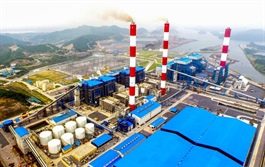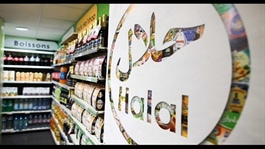Retail market increasingly attractive to investors
Retail market increasingly attractive to investors
Viet Nam’s retail market is becoming a magnet for investors thanks to favourable conditions such as political stability, transparent capital control and large market size.

AEON, Lotte, Circle K and K-Mart, to name a few, are among large retailers that have been expanding their retail chains in the country recently.
In late November, Motoya Okada, chairman of AEON, disclosed that the company regarded Viet Nam as a market no less important than its primary Japan market. The company is thus set to double the number of its shopping centres in the country in the near future.
In May, Masan Corporation and a group of investors, including Alibaba and Baring Private Equity Asia, entered into an agreement to buy newly-issued shares of The CrownX worth up to US$400 million.
Previously, SK Group also spent more than US$410 million to gain a 16.26 per cent stake in VinCommerce, a company that runs the retail chain WinMart of Masan Corporation.
Although a few foreign retailers did not follow suit and left the market, many domestic retailers have successfully turned the pull-out to their advantages, quickly implementing M&A to fill the gap and gain market share. Domestic brand names such as Vingroup, Masan and MWG still remain dominant in the market despite increasing participation of foreign players.
Overall, modern retail accounts for 26 per cent of market share, with an annual growth of 12 per cent, whereas traditional retail, which consists of grocery stores and open-air markets, takes the lion’s share (74 per cent) with a growth of 1 per cent per year.
During the pandemic, the retail market made a huge contribution to the continuity of supply chains. Notably, retailers kept the circulation of essential goods uninterrupted and kept prices stable even though strict lockdowns were put in place.
Nguyen Anh Duc, general director of Saigon Co.op, noted that amid the pandemic, many traditional open-air markets were closed. Co.op Mart retail chains thus had to go all-out to take up the slack, maintain the supply of goods and keep prices stable.
“Retail chains have allowed sufficient supply of goods to meet people’s demand,” said Pham Thu Huong, a consumer in Ha Noi.
As Vietnamese products are over-represented (90 per cent) in supermarkets, production and distribution firms are paying closer attention to those products.
They aim to deliver made-in-Viet Nam products with higher quality and a wider variety in order to improve their competitiveness, win customer loyalty and maintain a sustainable supply chain of domestic products.
A strong supply chain of Vietnamese products would require close connections between regions and local specialisations in product development, as well as better directions from the authorities, Nguyen Anh Duc said.
To create more favourable conditions for the development of the domestic market, the Prime Minister has issued Decision No.1163/QD-TTG on Strategy for the development of domestic trade by 2030 with a vision towards 2045.
The decision was aimed at developing domestic trade; promoting Vietnamese brand names; safeguarding the economy, domestic firms and consumers; and creating a foundation for further economic integration.

















